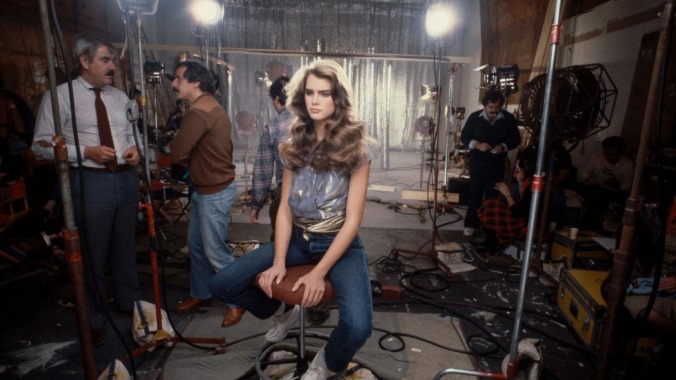Pretty Baby: Brooke Shields review: unflinching doc charts a journey from victim to survivor
Director Lana Wilson's comprehensive look at Shields' life and career delivers a powerful condemnation of our voyeuristic celebrity culture

Actress, model, icon, sex symbol, dream girl, the face of an era—all of these titles perfectly suit Brooke Shields. However, she was saddled with these monikers as an adolescent girl, her outward attributes scrutinized by an exploitative media and many a leering male gaze. Her all-American good looks and natural charisma rocketed her into the stratosphere, but the unwanted by-product of that fame was her pre-pubescent image being objectified by men and abused for the sake of art and commerce.
In Hulu’s two-part documentary Pretty Baby: Brooke Shields, director Lana Wilson (Miss Americana, After Tiller) captures Shields’ compelling reality with an assured voice while also holding up a mirror to society and examining how it allowed this type of lurid sexualization of young girls to flourish. As revealing as it is revolting to hear what she experienced, it inspires plenty of thought-provoking conversations. Her testimonials, as well as those from scholars, authors, friends, and family provide a comprehensive portrait of a personal life and career filled with highs (from educational achievement to motherhood) and lows (from her mother Teri’s alcoholism to her own post-partum depression).
By co-opting the title of Louis Malle’s controversial 1978 drama Pretty Baby—in which Shields stars as a pre-teen sex worker—Wilson suggests a narrative finally controlled by a woman who has developed a powerful voice. Though the documentary doesn’t reinvent the genre—it stitches together talking head interviews, home videos, film footage, and photographs—its straightforward nature makes the facts and emotional urgency all the more stark. They don’t need to over-stylize the aesthetics; Shields’ drama is eye-popping enough as it is.
Wilson and editors Sara Newens and Anne Yao supply the crackling energy, showcased in sequences that combine an interviewee’s salient points about the seediness of the times with damning visual evidence of journalists objectifying the then 9-year-old (one labeled her “The Child That Drives Men Wild”). In its lighter moments, it finds strength in scenes showing Shields at home, spotlighting the mundanity of her domesticity, and in chats with her friend—and the documentary’s executive producer—Alexandra Wentworth.

![HBO teases new Euphoria, Larry David, and much more in 2026 sizzle reel [Updated]](https://img.pastemagazine.com/wp-content/avuploads/2025/12/12100344/MixCollage-12-Dec-2025-09-56-AM-9137.jpg)






































